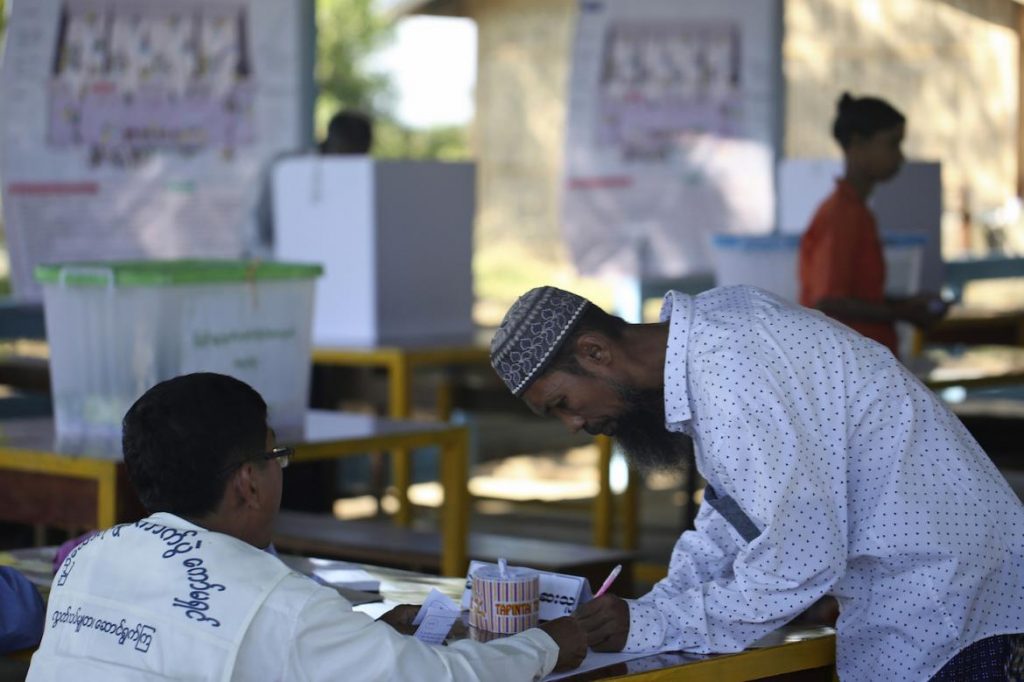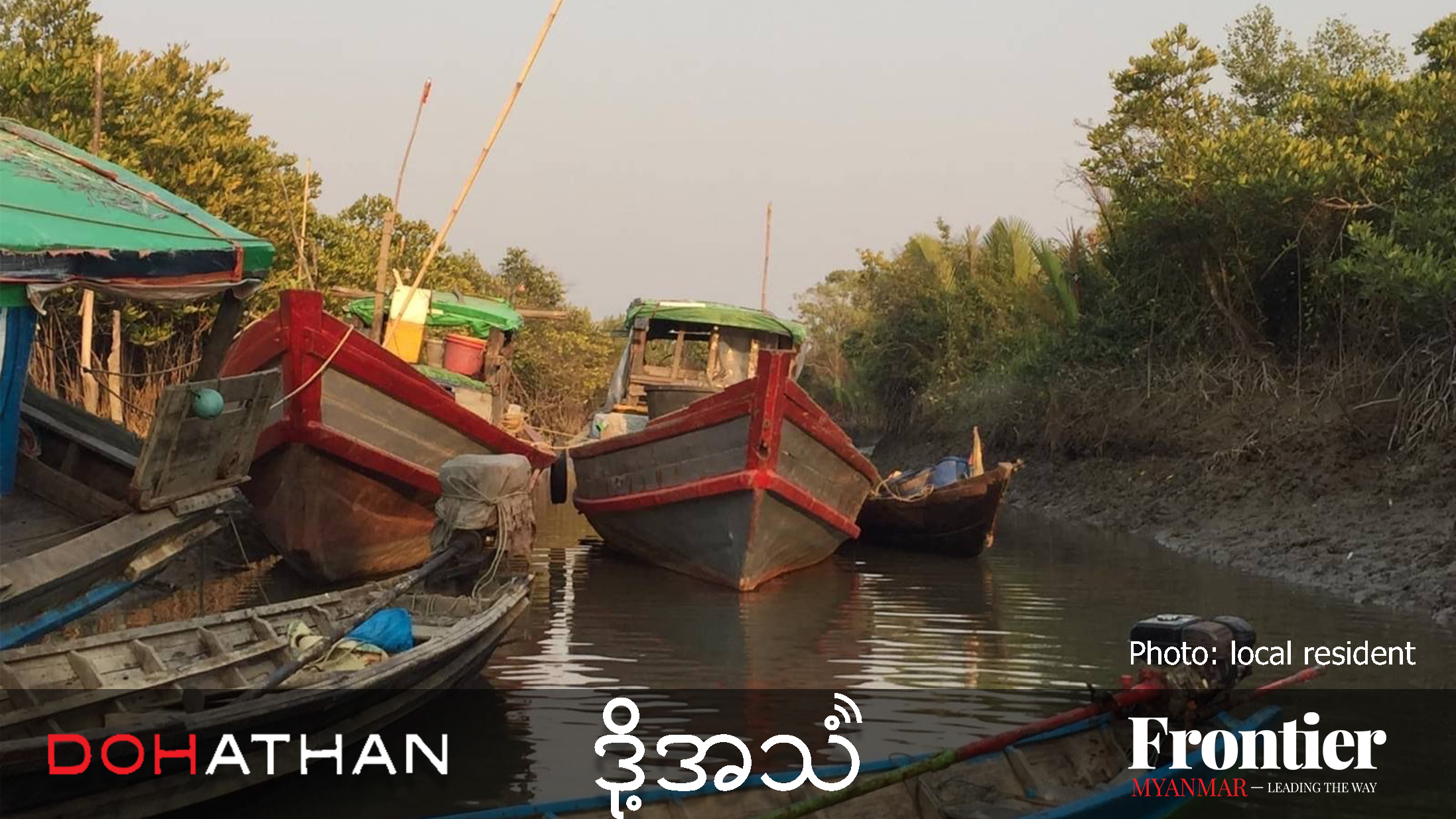By NYAN HLAING LYNN | FRONTIER
NAY PYI TAW — The government has resumed a controversial citizenship verification process in Rakhine State, an immigration official has revealed, amid pressure from Rakhine politicians to implement the 1982 Citizenship Act in the restive state.
The new government resumed the citizenship scrutiny process on May 1, U Myint Kyaing, permanent secretary of the Ministry of Labour, Immigration and Population told Frontier.
“It is one of the ministry’s projects for its first 100 days,” he said.
The process, which examines the credentials of Rakhine’s mostly stateless Muslim population, was launched as a pilot project by the previous government in June 2014 but suspended shortly afterward due to protests from the ethnic Rakhine community.
Support more independent journalism like this. Sign up to be a Frontier member.
Under the pilot, more than 200 Muslims were granted citizenship in Myebon township – a mix of Kaman, a recognised ethnic group, and ‘Bengali’, the government’s name for the community that identifies as Rohingya.
This decision incensed Rakhine nationalists, who said the Rohingya should not be eligible for citizenship at all as they are not a recognised ethnic group.
In mid-2015 the project resumed in another guise. Those without citizenship were invited to apply for temporary identification documents, known as green cards, which were introduced to replace white cards. The green cards grant some limited rights, and are issued to those whose citizenship status has not yet been confirmed.
The issue was recently discussed in parliament, with Arakan National Party MP Daw Khin Saw Wai proposing on May 6 that the government carefully scrutinize the credential of citizenship applicants in accordance with the 1982 Citizenship Law.
She said Rakhine State had been overrun by illegal immigrants from Bangladesh, and the situation had been exacerbated by the issuance of white cards in large numbers to these illegal immigrants.
“Although there is a just and fair law, sadly we are experiencing instability because the government has not been able to implement it properly,” she said.







